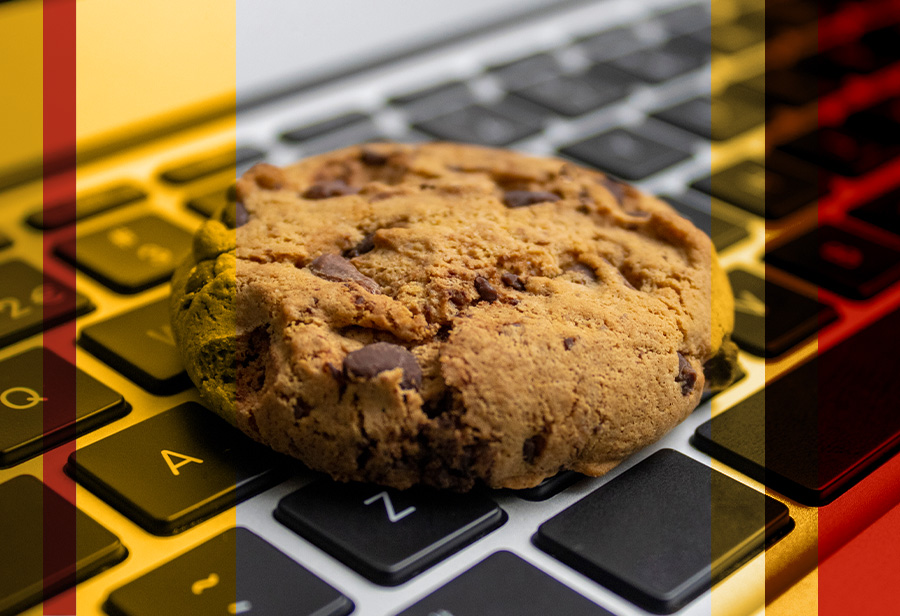
Thinking
The cookie-less future and what it means for your business
This post isn’t about the ooey-gooey deliciousness of chocolate chip cookies. Can you imagine a future without cookies? We can’t! But if you’re looking for a food post, you’re in the wrong place.
What are we talking about?
With that out of the way, let’s clarify what we are talking about: cookies in a technology sense – small pieces of data that are placed in your browser when you visit a website. As marketers, we rely on cookies to give us insights about our customers.

Many cookies contain simple website preferences (like specifying that you’ve already seen a pop-up message), while others hold more personally identifiable information, such as your email address or the user ID you use to log into the site. Not all cookies are the same.
First-party cookies are placed and controlled by the server operating under the domain that the user visits. These cookies are used by the website owner to collect analytical data, remember preferences and provide personalized experiences.
Third-party cookies are stored by organizations other than the owner of the website the user is visiting. They are typically used for cross-site ad tracking, wider audience profiling and targeting, and improved personalization in advertising (especially when prospecting for new users). Check out this Apple ad to get an idea how you’re watched online.
What’s changing?
Prompted by increased user privacy concerns, third-party cookies will be blocked by Google on its Chrome browser sometime in 2023. They have already been blocked within other browsers such as Safari and Firefox. With Chrome having the highest market share of any browser, the changes taking place on that platform will have the most significance.
The removal of third-party cookies from Chrome is one of many recent privacy-related changes in the digital landscape that reduce the available data that marketers and advertisers have at their disposal. Many people refer to this phenomenon as “data deprecation” – we suspect that’s a term you’ll start to hear more in the years ahead.
Specifically, the changes to third-party cookies will affect the amount of information advertisers can access about individual users by traditional means. This might affect the way you use third-party services to:
- measure performance
- implement single sign-on
- tailor experiences for users of multiple devices
- conduct A/B testing
- personalize your site
As an advertising platform, Google has planned for this and has been working on at least one initiative to help marketers navigate this “cookie-less” future.
With many users staying logged into Facebook and Google, both platforms become the sole keepers of key data, cornering the advertising market. However, third-party advertisers will still be able to target by profiling browsers and content targeting. The upcoming changes will make it important to know and understand your audience.
Using their Privacy Sandbox, Google hopes to provide the benefits of user tracking while retaining anonymity by placing users into groups of similar interests. There is still much work to be done so we’re looking forward to seeing what comes from it.
It’s important to note that first-party cookies will not be impacted. Some third-party platforms offer first-party cookies. Keep this in mind when you plan your strategy.
What’s your next step?
With third-party cookies being phased out, first-party data will be more valuable than ever. This means that as a marketer, you’ll need to find a new way to identify people online so you can continue to personalize messages, optimize campaigns and measure performance.
One thing you can – and should – do is make sure your company’s website is set up to collect the data you need to complete those objectives.
Behavioral targeting will still be available for third-party advertisers. For example, as part of its Business Tools, Facebook has its Conversions API. It lets organizations share key web and offline events, or customer actions, directly from your server to Facebook’s. The Conversions API works with your Facebook pixel to help improve the performance and measurement of your Facebook ad campaign. Note that Facebook’s pixel can be served with a third-party cookie or a combination of first- and third-party cookies. If you’re using the third-party one, it might benefit you to switch. Check here for details.
As a result of these changes, email marketing will also gain more importance. Without third-party cookies, it would be smart to reevaluate your email campaigns. Is your email database up to date? What do your metrics look like? How can you strengthen your email program?
CRMs (Customer Relationship Management) will also become more important as keepers of customer data. Focus on growing your first-party data and start building direct customer relationships. This will be imperative in a post-cookie world.
Finally, invest in analytics. Instead of relying on other platforms, gather your own data to help guide marketing efforts.
To recap: while this is a significant change, there are still plentiful opportunities for marketing. After all, when one door closes, another one opens. It’s just a matter of strategically finding the right new opportunity and adjusting accordingly.
If you’re wondering how to take that next step, drop us a line.

